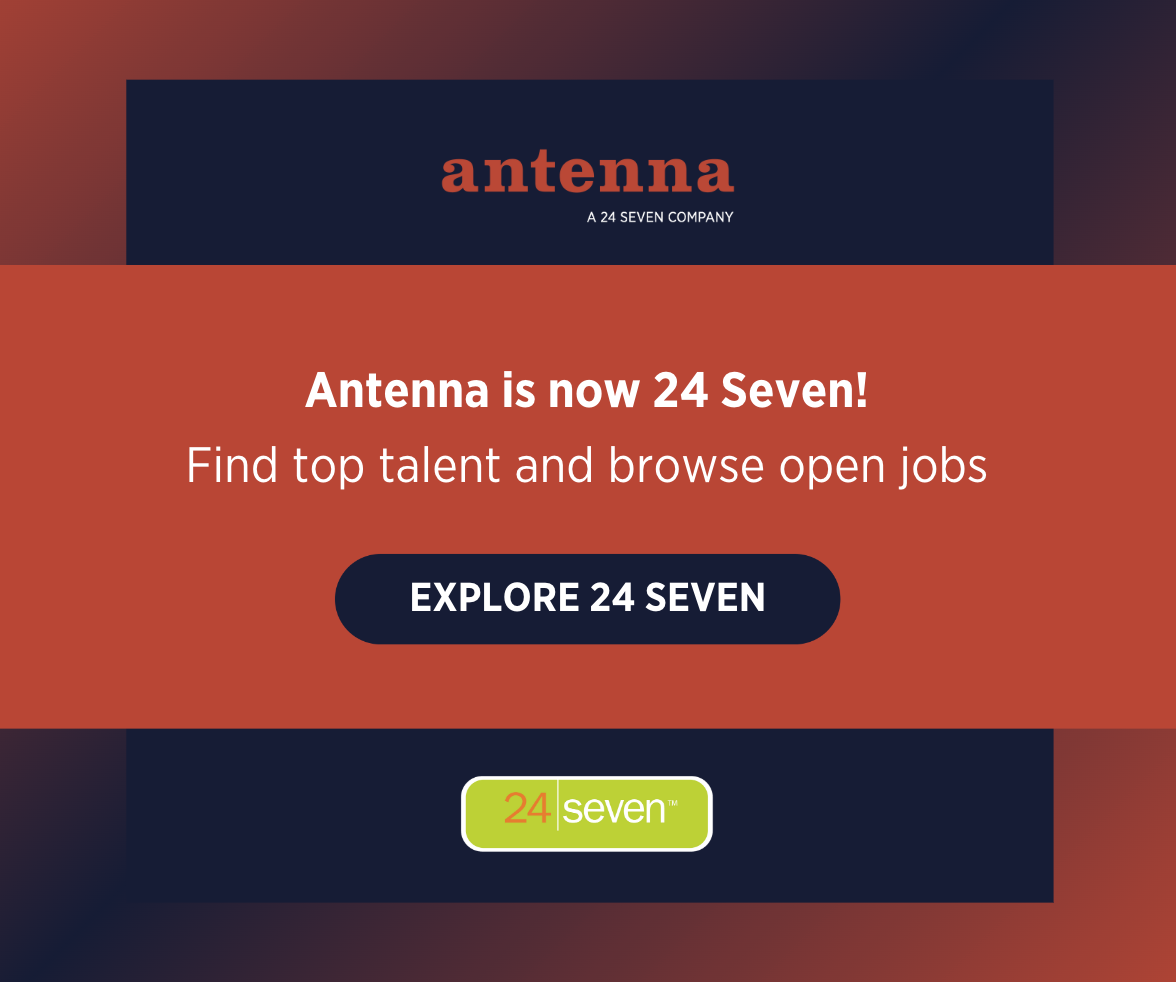
How to Integrate a Consultant into Your Talent Mix
By Jennifer Laible
When you talk about your “team” at work, what do you really mean? Ten years ago when we talked about “teams” we really meant “employees,” but teams look much different today. Instead of mostly employees with a few outside agencies and partners sprinkled in, teams are more complex.
At Antenna we think about today’s talent team as a “clover” — a mix of employees, key agencies, consultants, and contractors. The clover flexes and changes constantly based on key projects and initiatives.
And as teams have changed, managing the talent mix has gotten a lot more complicated. Earlier this year I shared ideas on how to find the right talent mix for a content marketing team. Now let’s look at how to successfully bring in one key talent element — consultants — to any kind of team.
As president of Antenna, my team and I help Antenna consultants make the maximum impact on client organizations. After working with dozens of companies and hundreds of consultants, we’ve learned a few critical steps for success. Here are five ways to make sure outside consultants have the support and information they need to hit the ground running and contribute quickly.
Clarify Your Goals for the Consultant
When you decide to hire a consultant, you likely have a project you need help with or a role that needs to be filled. Consultants can be a powerful force on a team, but they aren’t magicians — they can’t make everything instantly better if they aren’t provided with clear goals.
Get very specific about the consultant’s goals:
What project will they be focused on delivering? Or, what role will they fill?
What do you want them to accomplish, on what timeline?
How will you measure progress and success?
Make sure the consultant knows the answers to all of those questions before they start, and have continuous conversations about progress toward their goals.
Prepare for the Consultant Before Their First Day
Here’s one of the biggest, most expensive mistakes I see companies make: They hire a consultant, sign the contract, then check the box and move on. They don’t think about that person’s workload or onboarding until the first day the consultant shows up in the office. They’re unprepared and end up scrambling to pull together everything the consultant needs to get started.
To maximize every moment of the consultant’s time (and your budget), plan ahead. Think about everything the consultant will need to hit the ground running. Before the consultant’s first day, prepare:
All of the current information related to their work. This might include printed materials, historical data pulled from different databases, strategy decks, company background and reading material.
A list of key people they’ll need to talk to. Who are the internal stakeholders, customers, other consultants, agencies or partners that the consultant should get to know right away?
The administrative tools they’ll need to work at your organization. Don’t make a consultant wait two days for their computer and email address. Set up basic administrative tools ahead of time.
Schedule Time in Advance with Key Team Members
Relationships are crucial to a consultant’s success. Often, consultants need to meet with a long list of people before they can dig into the work. If it takes them weeks (or months!) to get meetings on all of those people’s calendars, their contributions will be limited.
To speed up that process, here’s how I recommend introducing a new consultant to the team: Let’s say Sarah is starting as a consultant on a market research project next month. Send an email to everyone who will work with Sarah. Introduce her, share why you’re excited about her expertise and what she’s bringing to the team, and explain her core goals.
Then schedule time for Sarah on each person’s calendar and specify exactly what you expect each person to share or discuss during their meeting. Doing so in advance will help her get moving faster, and avoid long lag times because of vacations, travel, and busy schedules.
Provide Plenty of Context
Consultants bring expertise, but they’re often missing something just as important: context. If a consultant has never worked at your organization they’ll need to know how decisions get made, how to navigate the organization, what internal language to use, and what values and priorities guide the team’s strategies.
For example, one of our client’s corporate strategy is based on five key pillars. In order to communicate priorities, everyone at the company talks in terms of those “pillars.” If a consultant leads a meeting and talks about “goals” or “objectives,” they won’t be heard in the same way. I’ve seen this ring true inside many organizations — if you don’t know and use the internal vocabulary, your ideas fall flat.
Your organization might be prepared with a corporate glossary or an explainer for acronyms. But if you don’t have that resource, make your own. Explain the most important internal language to new consultants, and encourage them to ask questions if they hear jargon they don’t understand. That context will help a consultant integrate quickly into the team and minimize confusion.
Be Open to an Outside Perspective
If you’ve hired a consultant, you’re probably looking for new ideas. Prepare yourself for those ideas by keeping an open mind. I can’t tell you how many consultants start a project, bring in a new perspective, and are immediately shut down. It’s easy to say “that’s not how we do things here” or “that will never work.” Instead, know from the start that a consultant’s ideas will run a little counter to the status quo.
If you’re managing consultants, following these steps will help their expertise shine through. Be a champion for your consultants by setting them up to make a positive impact from day one.
Subscribe to our blog to get the latest post delivered to your inbox weekly.
Stay connected with Antenna. Follow @Antenna for our take on marketing trends, corporate culture, and current events.
